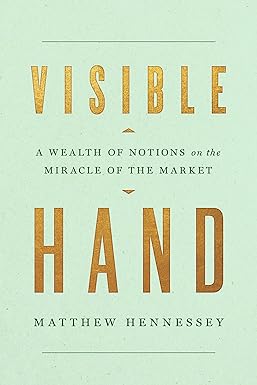At the Josiah Bartlett Center, Drew Cline encourages readers to ignore people trying to claim otherwise: State financial inputs aren't the measure of a university system. Skipping to his conclusion:
Yes, New Hampshire’s state subsidies for its university system are low when comparing us to other states. And yet UNH is continually rated as a top value in higher education (No. 7 in the nation, No. 1 in New England last year).
UNH also ranks 52nd in US News & World Report’s college rankings, tied with Cal State-Long Beach, George Mason, San Diego State, Arizona, Missouri, UT-Knoxville, and University of Texas at Dallas. It ranks above the University of South Carolina, University of Vermont, University of Oklahoma, University of Utah, Oregon State, Colorado State, James Madison and many other well-known and respected universities.
Whether you place a low or high value such rankings, these types of metrics somehow go unmentioned in most stories about USNH state subsidies.
Relatively low state subsidies have forced UNH and USNH to operate relatively leanly, to strive to do more with less within existing regulatory and market constraints. That’s been good for taxpayers, and it’s made our system more efficient than others.
We can debate what the appropriate level of subsidy is. But we should stop getting duped into focusing on this one input to the point that we ignore other vital inputs and all outcomes.
If I were a state legislator, I would wait until we hear how UNH and USNH handle the recent law demanding an end to its "diversity, equity, and inclusion (DEI) initiatives". Surely that's gotta save some dough.
Also of note:
-
A dimly remembered quote. I'm pretty sure it was in the satirical "Letters" column in a very old issue of National Lampoon:
A piano is a piano is a piano.
— Gertrude SteinwayI still get a chuckle out of that. And it was brought to mind by an op-ed from Sarah Lehnert in the weekend WSJ: Want a Steinway? The Forest Service Stands in the Way. (WSJ gifted link)
Steinway pianos have a particular sound. “When one plays a Steinway, there is a warmth and nobility in the sound that is unequalled by any other instrument,” says Ukrainian-born classical pianist Emanuel Ax. The secret to the sound isn’t merely Steinway’s skilled craftsmen—who’ve been using the same methods since 1853—but the specialized wood they use for the soundboards. It comes from the Tongass National Forest in Alaska, and it gives Steinway pianos the highest quality of tone, pitch, clarity and consistency. Unfortunately, a broken promise from the federal government will soon stop the music.
Apparently, the US Forest Service prefers to keep the wood in the trees, and out of the pianos. Sarah makes a pretty convincing case that the wood can be harvested without overall damage to the forest, and increased musical beauty for worldwide audiences.
-
I used to read Playboy for the articles. Well, not exclusively. But I read the WSJ for the editorials. Let me link to an article I also blogged a few days back, from David Henderson at EconLib: Who Got the Biggest Percentage Tax Cuts? Quoting a side issue:
Surprisingly, reporters for the Wall Street Journal last week pointed out that the lowest income quintile received the largest percentage decrease in taxes. Why do I say surprisingly? Isn’t the Wall Street Journal the kind of newspaper that, of course, would point that out? The editorial page, certainly. But not the news pages. I’ve read the Journal multiple times a week for 52 years and I’ve always noticed the split between the conservative/sometimes libertarian editorial page and the left-of-center news pages. Indeed, the UCLA economist and now George Mason University economist Tim Groseclose established in his 2011 book, Left Turn: How Liberal Media Bias Distorts the American Mind, that WSJ reporters are among the most left-wing of all reporters for the major media. I reviewed his book here and briefly cited his evidence about the Journal.
I will occasionally notice a leftward slant in WSJ news articles, but overall I think they play it pretty straight. Being oriented toward business and economics (I think) requires them to stay clear of obvious fantasies and fallacies.
-
Eulogy for a guy I had never heard of. At the Federalist, Dan Perrin, Brian Darling, Ed Corrigan, Greg Rothman, and Tony Rudy note a passing: Mike Hammond Made Washington And The World A Better Place.
It’s a story we’ve heard a thousand times: A young, idealistic person comes to Washington, D.C., driven by a deep desire to make the world a better place. For many, that idealism eventually gives way to pragmatism — or worse, to cynicism. What’s rare — extraordinary, even — is someone who can spend over 50 years in the Beltway without ever losing that original sense of purpose. What is even scarcer is finding someone who succeeded in making the world a better place. That person was Michael E. Hammond.
And there is an LFOD angle:
Hammond spent his final years working on the causes he loved from his office at Gun Owners of America in Virginia and his home in New Hampshire. There was something about the Granite State that Hammond found special, but we always thought it was perhaps its motto, “Live Free or Die,” because it epitomized his spirit and ethos. He also got to live his version of the Walter Mitty fantasy, writing a play and having it produced.
Apparently from Dunbarton. RIP.
| Recently on the book blog: |
![[UNH]](/ps/media/unh_thall.webp)

![[The Blogger]](/ps/images/barred.jpg)



